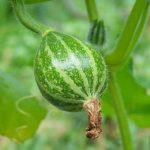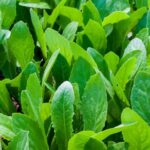Introduction
Coffee is becoming a popular choice for gardeners to use in vegetable gardens. Coffee has several potential benefits for use in the garden, including its ability to nourish plants, stimulate microorganisms in the soil, and deter pests. Additionally, it can improve soil health and increase the nutrient content of your vegetables. However, there are also potential drawbacks to consider before applying coffee to your vegetable garden. While in small doses coffee can be beneficial for plant growth, too much of it can cause an imbalance in the mineral content of the soil, leading to undesirable changes in soil pH levels and affecting nutrient uptake by plants. In addition, although coffee might repel some pests it may attract others instead, such as ants and rodents which could damage your crops. It’s important to consider both benefits and potential drawbacks when deciding whether or not to use coffee on your vegetable garden.
Benefits of Using Coffee
Coffee grounds have a number of benefits for the vegetable garden. Using them as a mulch around tomato plants, for example, can help with water retention, reduce weeds, and improve soil fertility long-term. Coffee grounds also create an ideal environment for earthworms, whose tunneling activity helps to aerate and refine the soil. Additionally, research has also shown that coffee can be used as an effective fungicide against common tomato fungal diseases such as early blight and late blight.
Coffee can benefit many other types of plants in the vegetable garden as well. Cucumbers, peppers, squash, eggplants and beans love coffee because it helps tomatoes fend off diseases that could affect those plants too. Asparagus roots batten down on nitrogen-rich coffee to build strong stems; even carrots like a boost of nitrogen every now and then! Coffee is also beneficial to cruciferous vegetables (cabbage family) like broccoli and cauliflower due to its ability to limit growth of pathogens such as white rot. Other perennials like roses and berry bushes love its nutrient-filled goodness too.
Types of Coffee to Use
Mulching: Mulching with coffee grounds is a great way to add nutrients to your vegetable garden. Coffee grounds naturally contain nitrogen, which helps plants grow. Simply spread the grounds around the base of your plants, or incorporate them into compost piles for long-term benefits.
Watering: Adding used coffee grounds to your watering can and watering your plants is another option. The nutrient-rich mix helps feed resistant vegetables such as tomatoes, peppers, squash and eggplant. The organic matter also helps improve drainage in heavy soil types and reduces evaporation from sandy soils. Remember not to use more than 10% of coffee grounds in relation to water when creating an infusion fertilizer.
Vermicomposting: Vermicomposting involves cultivating red worms in a container with moistened newspaper strips and shredded cardboard mixed with coffee grounds. The worms aerate the soil while consuming the coffee grounds and creating rich vermicompost (worm castings). This mixture makes exceptional plant food that offers all essential nutrients to help vegetables thrive in the garden.
How to Apply Coffee to Your Vegetable Garden
Coffee can be a great addition to your vegetable garden as it can help to improve soil composition, deter certain pests, and reduce fungus and bacteria in the soil. To apply coffee to your vegetable garden, start by collecting used coffee grounds from nearby cafes, restaurants, friends, or family and store them in a covered container until they’re ready to be used. When you’re ready to incorporate coffee into your garden beds or containers, spread the coffee grounds directly around plants making sure not to pile them too high so that their decomposition doesn’t smother the plants. Additionally, adding coffee grounds to compost piles will boost nitrogen levels. Ensure you are disposing of any plastic cups safely as well. Once this is done, keep watch for any signs of irritation from your plants as too much caffeine may kill them due to its acidity.
Conclusion
Research could be done to see what concentrations of coffee are optimal in terms of fertilizer, pest control, and plant health. Experiments could compare the growth rate, resistance to pests and diseases, nutritional content and yield of plants grown in different concentrations of coffee compared to the same plants grown without coffee. Additionally, research could explore the effects of various brewing methods on soil composition, fertility and acidity. Furthermore, studies could be conducted to observe how the pH level is affected by adding regular quantities of brewed or ground coffee to soil over time. An assessment of any environmental concerns due to widespread cultivation with coffee inputs should also be addressed. Finally, experiments should be done for varying crop types with different levels of moisture needs depending on the location where they will be grown.

If you’re looking to get into vegetable gardening, or are just looking for some tips on how to make your current garden better, then you’ve come to the right place! My name is Ethel and I have been gardening for years. In this blog, I’m going to share with you some of my best tips on how to create a successful vegetable garden.





